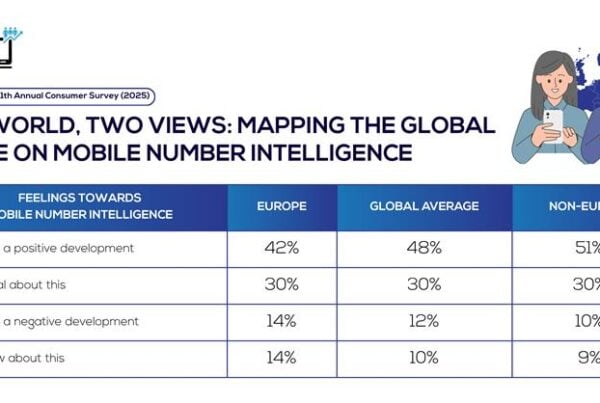MEF Advisor Paul Ruppert discusses the news that the FTC has issued a warning to major tech firms: applying foreign censorship or weakening encryption for U.S. users may violate federal law. The notice singles out Europe’s DSA and UK safety laws, signaling that uniform global compliance strategies now carry legal risk. For platforms and providers, the message is clear; geo-segmentation is no longer optional.
The U.S. Federal Trade Commission has warned a slate of leading tech firms that censoring Americans or weakening the security of their communications at the behest of foreign governments could violate U.S. law.
The notice explicitly points to Europe’s Digital Services Act (DSA) and the UK’s Online Safety Act and Investigatory Powers Act as pressure vectors—and it landed in the inboxes of messaging platforms from Alphabet and Apple to Microsoft, Meta, Snap, Slack, Signal, X and others. Federal Trade Commission.

The agency’s message is straightforward: if you promise Americans secure, encrypted services—and then quietly downgrade security or apply foreign speech rules to U.S. users—you may be engaging in deceptive or unfair acts under Section 5 of the FTC Act.
In business terms, a one-policy global approach that simplifies compliance by treating all jurisdictions the same now carries U.S. enforcement risk when it curtails U.S. users’ speech or privacy.
What–exactly–the letter says
The Chairman’s letter sets the tone with a free-speech frame: online platforms are now “public squares,” and “pervasive online censorship in recent years has outraged the American people,” including platform actions “not shared by a small Silicon Valley elite,” with the previous (Biden) administration “actively” encouraging such censorship.
It then links concrete legal risk to product reality: failing to use end-to-end encryption where appropriate or weakening security to satisfy a foreign demand can deceive consumers and may be unfair; applying foreign censorship rules to Americans can likewise be deceptive or unfair if not clearly disclosed.
The letter spotlights the DSA and UK laws as examples of regulatory pressure and warns against “uniform policies across jurisdictions” that export those constraints to U.S. users. It also asks companies to schedule a meeting by Aug 28 to explain how they will honor U.S. obligations amid foreign pressure.
This is a clear red line from Washington—don’t export foreign censorship or anti-encryption mandates to U.S. users, and don’t over-promise on security. Treat it as both an enforcement warning and a product-governance blueprint—and work with MEF to build practical, harmonized approaches that protect consumers and keep trusted messaging open for business.“
Why this matters to the Mobile Ecosystem
For platforms and telecom-adjacent providers (cloud messaging, CPaaS, anti-abuse tooling, RCS enablement), the takeaway is operational: geo-segmentation is no longer optional.
If your moderation, logging, or security stack was tuned to satisfy foreign rules and that tuning bleeds into U.S. traffic, you need evidence that U.S. users were not censored or downgraded—or you need prominent, accurate disclosures explaining any constraints. Put simply: say what you do, and do what you say—in the U.S., even when foreign regulators push otherwise.
There’s also a geopolitical undertone. The FTC’s move is widely read as the opening U.S. shot across the bow of the DSA’s extraterritorial pull, setting up a conflict-of-laws dynamic that forces dual-compliance engineering: DSA in the EU; Section 5 constraints in the U.S. Media coverage emphasizes the letter’s warning not to apply the DSA in ways that jeopardize Americans’ freedom and safety.
What’s Really Driving This
Policy and politics are intertwined. The letter mixes consumer-protection law with explicit free-speech rhetoric and a promise that this FTC will guard U.S. users against foreign-driven censorship and anti-encryption pressures. It’s also a sovereignty signal: Washington does not want EU/UK rules silently imported into U.S. products via global policy “shortcuts.”
More broadly, the move reflects a “might-means-right” theory of digital governance often associated with the Trump era—using U.S. market power and enforcement tools to defend domestic norms and strategic interests even against allied partners like the EU and UK.
It’s techno-nationalism in practice: treating platform rules, encryption defaults, intermediary liability, and cross-border data access not just as consumer-protection choices but as instruments of national competitiveness. The practical aim is to keep foreign rulemaking from setting de facto standards for Americans and to push companies toward U.S.-first product configurations, even at the expense of global harmonization.
Winners, losers, and unintended consequences
Winners: U.S. users (if promised security and free expression are preserved); providers that can prove end-to-end encryption, truthful disclosures, and geo-scoped enforcement; compliance-mature CPaaS firms with auditable controls.
Losers: “One-size-fits-all” policy stacks, quiet encryption downgrades, and moderation workflows that can’t be jurisdictionally fenced.
Unintended effects: More policy fragmentation by region; slower rollout of global safety or integrity features if teams fear creating U.S. exposure when accommodating foreign regulators.
What MEF members should do now
- Assess & Map exposure. Identify where foreign regulations (DSA/OSA/IPA) could influence U.S. traffic—from classifier thresholds to encryption defaults and key management.
- Substantiate promises. Ensure marketing, UX copy, and contracts accurately reflect U.S. security and moderation behavior; don’t imply E2EE where you don’t deliver it.
- Engineer separation. Implement geo-scoped feature flags, rule sets, and logs that demonstrate U.S. users weren’t restricted or downgraded due to foreign demands; require the same from vendors.
- Disclose when necessary. If any foreign-driven constraint touches U.S. users, make prominent, plain-language disclosures to mitigate deception risk.
- Be Board-ready. Prepare a short deck and evidence trail as inoculation agains potential FTC action and align U.S./EU counsel on a conflict-of-laws playbook.
Bottom line
This is a clear red line from Washington—don’t export foreign censorship or anti-encryption mandates to U.S. users, and don’t over-promise on security. Treat it as both an enforcement warning and a product-governance blueprint—and work with MEF to build practical, harmonized approaches that protect consumers and keep trusted messaging open for business.
By responding decisively, collaboratively, and strategically, MEF members can navigate this uncertain landscape effectively, minimizing risks and positioning themselves for sustained success.





